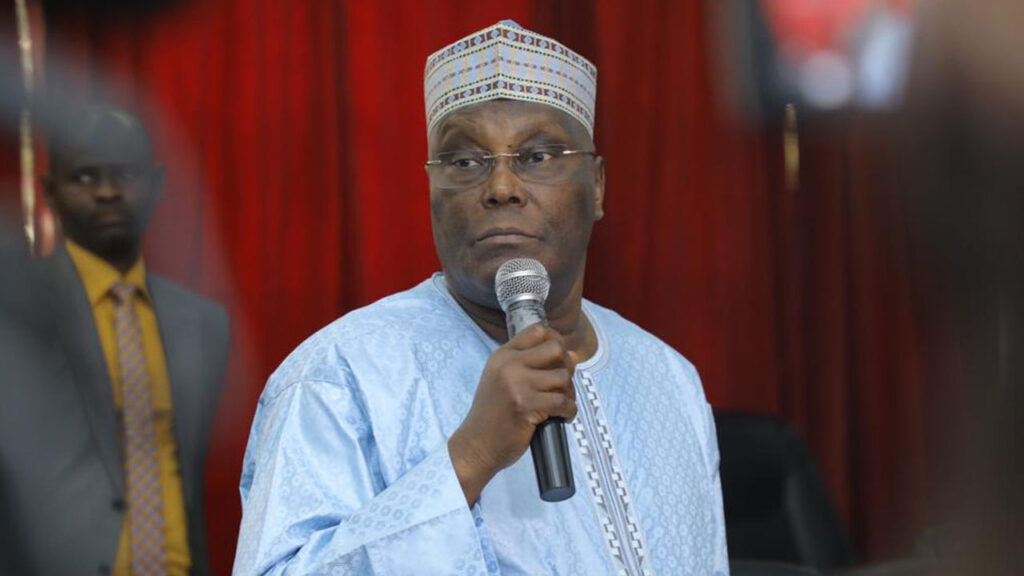The presidential candidate of the Peoples’ Democratic Party (PDP), Atiku Abubakar, has revealed his plans within the first 100 days in office if given the mandate to lead the country come 2023.
Atiku said he will create an Economic Stimulus Fund with an initial investment capacity of approximately US$10 billion to prioritize support to MSMEs across all the economic sectors.
The former vice president stated this on Tuesday while presenting his economic blueprint for Nigeria at the private sector economic forum on the 2023 presidential election organized by the Lagos Chamber of Commerce and Industry (LCCI).
He said MSMEs offer the greatest opportunities for achieving inclusive growth and he would undertake far-reaching fiscal restructuring to improve liquidity as well as the management of our fiscal resources.
Atiku promised to take five bold steps including undertaking an immediate review of government spending with a view to eliminating all leakages arising from subsidy payments; stop all fiscal support to ailing State-Owned enterprises; improve spending efficiency by gradual reduction of government recurrent expenditures; undertake a review of government procurement processes to ensure value-for-money as well as eliminate all leakages and focus on non-debt financing by promoting a private sector led infrastructure development fund for the financing and delivery of key infrastructure projects.”
“With its current precarious fiscal position and daunting development challenges, can Nigeria really afford to forego critical investments in education, health, security etc. and channel scarce resources to subsidizing the lifestyle of its elites? We will stop all fiscal support to ailing State-Owned enterprises. As with subsidy payments, by holding unto these underperforming enterprises, Nigeria is sacrificing investments in critical areas, including education, health, water, sanitation, and rural infrastructure. For example, the first phase in the rehabilitation of Nigeria’s refineries is expected to gulp US$1.55 billion!
“We will take steps to improve spending efficiency by gradual reduction of government recurrent expenditures. Over the medium term, recurrent expenditures should not exceed 45% of the budget and then we will undertake a review of government procurement processes to ensure value-for-money and eliminate all leakages as well as focus on non-debt financing by promoting a private sector led infrastructure development fund for the financing and delivery of key infrastructure projects,” he said.
Atiku said he would be more strategic and circumspect about debt accumulation.
